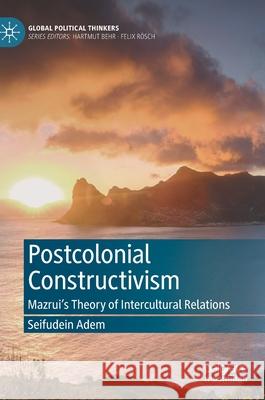Postcolonial Constructivism: Mazrui's Theory of Intercultural Relations » książka
topmenu
Postcolonial Constructivism: Mazrui's Theory of Intercultural Relations
ISBN-13: 9783030605803 / Angielski / Twarda / 2021 / 337 str.
Postcolonial Constructivism: Mazrui's Theory of Intercultural Relations
ISBN-13: 9783030605803 / Angielski / Twarda / 2021 / 337 str.
cena 442,79
(netto: 421,70 VAT: 5%)
Najniższa cena z 30 dni: 424,07
(netto: 421,70 VAT: 5%)
Najniższa cena z 30 dni: 424,07
Termin realizacji zamówienia:
ok. 16-18 dni roboczych.
ok. 16-18 dni roboczych.
Darmowa dostawa!
Kategorie BISAC:
Wydawca:
Palgrave MacMillan
Seria wydawnicza:
Język:
Angielski
ISBN-13:
9783030605803
Rok wydania:
2021
Wydanie:
2021
Numer serii:
000793606
Ilość stron:
337
Waga:
0.57 kg
Wymiary:
21.01 x 14.81 x 2.06
Oprawa:
Twarda
Wolumenów:
01
Dodatkowe informacje:
Wydanie ilustrowane











